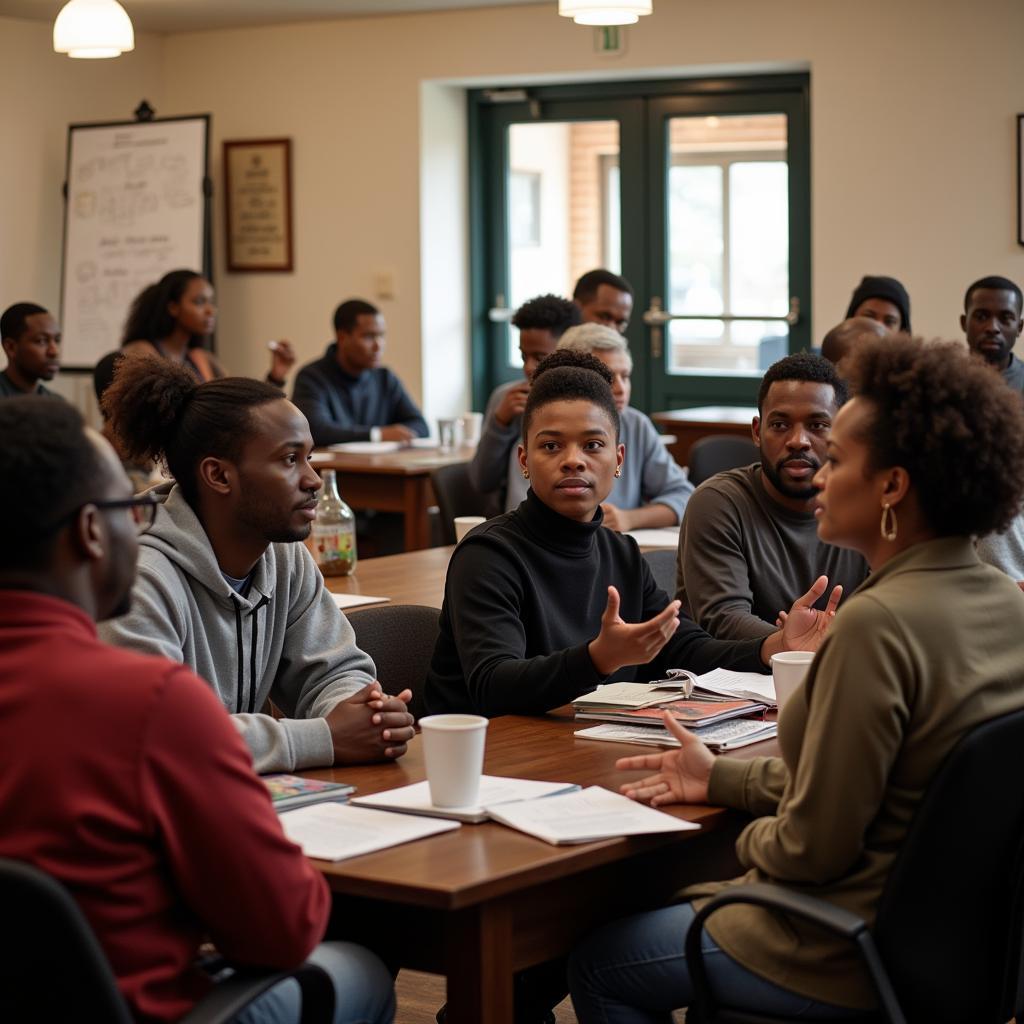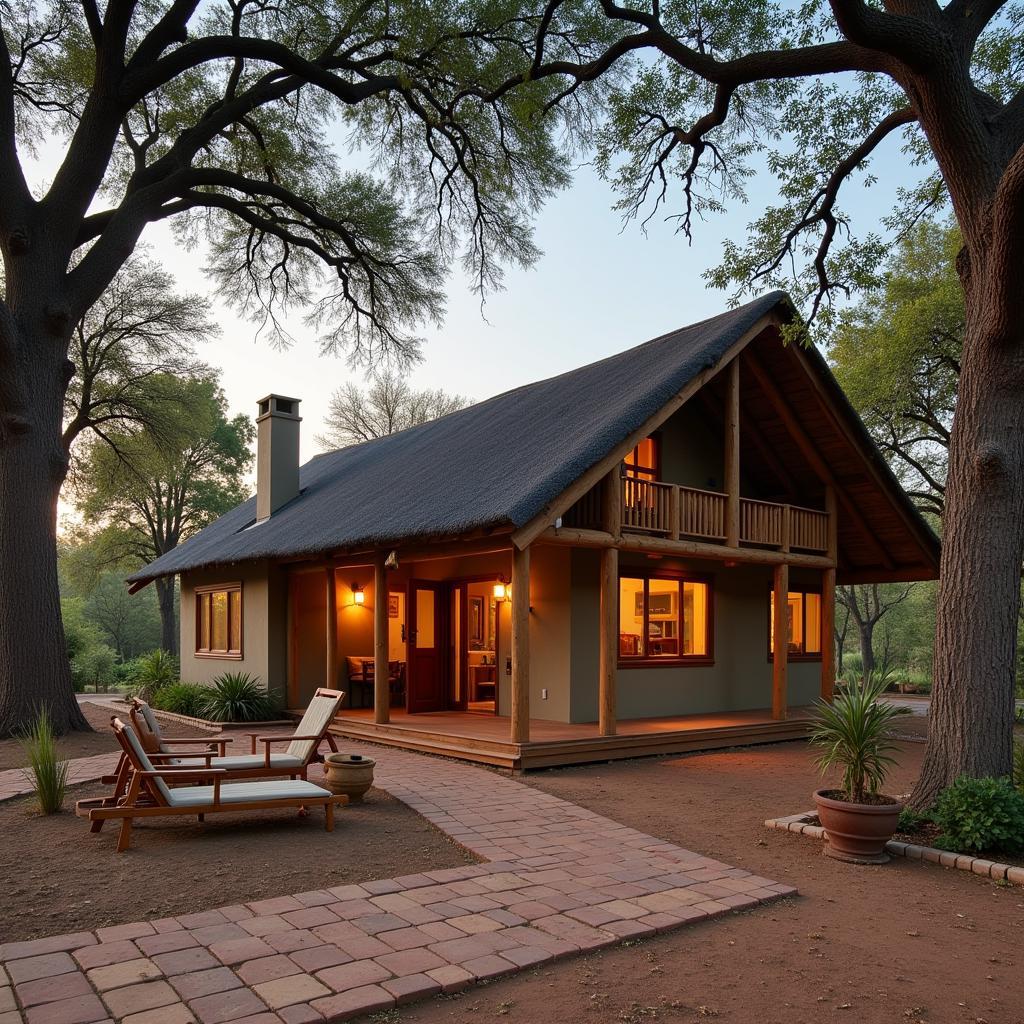African American Aviators: Soaring Above Prejudice
African American Aviators etched their names into history, overcoming racial prejudice and discrimination to achieve remarkable feats in the sky. Their journey, fraught with obstacles, is a testament to their unwavering determination, skill, and courage. From the early pioneers of flight to the heroic Tuskegee Airmen of World War II, these men and women defied expectations and paved the way for future generations of Black pilots.
The story of African American aviators begins long before the roar of modern aircraft. Bessie Coleman, a determined woman from Texas, faced insurmountable odds in the United States, where racism barred her from flight schools. Undeterred, she learned French and traveled to France in 1920 to earn her pilot’s license, becoming the first African American woman to do so. Her accomplishment resonated globally, inspiring countless others to pursue their dreams of flight.
Breaking Barriers: The Early Pioneers
The early 20th century witnessed the rise of several pioneering Black aviators who challenged the status quo. Figures like William J. Powell, who established the Bessie Coleman Aero Club in Los Angeles, dedicated themselves to training Black pilots and promoting aviation within their communities. These early pioneers laid the groundwork for future advancements and fought tirelessly for equal opportunities in the field.
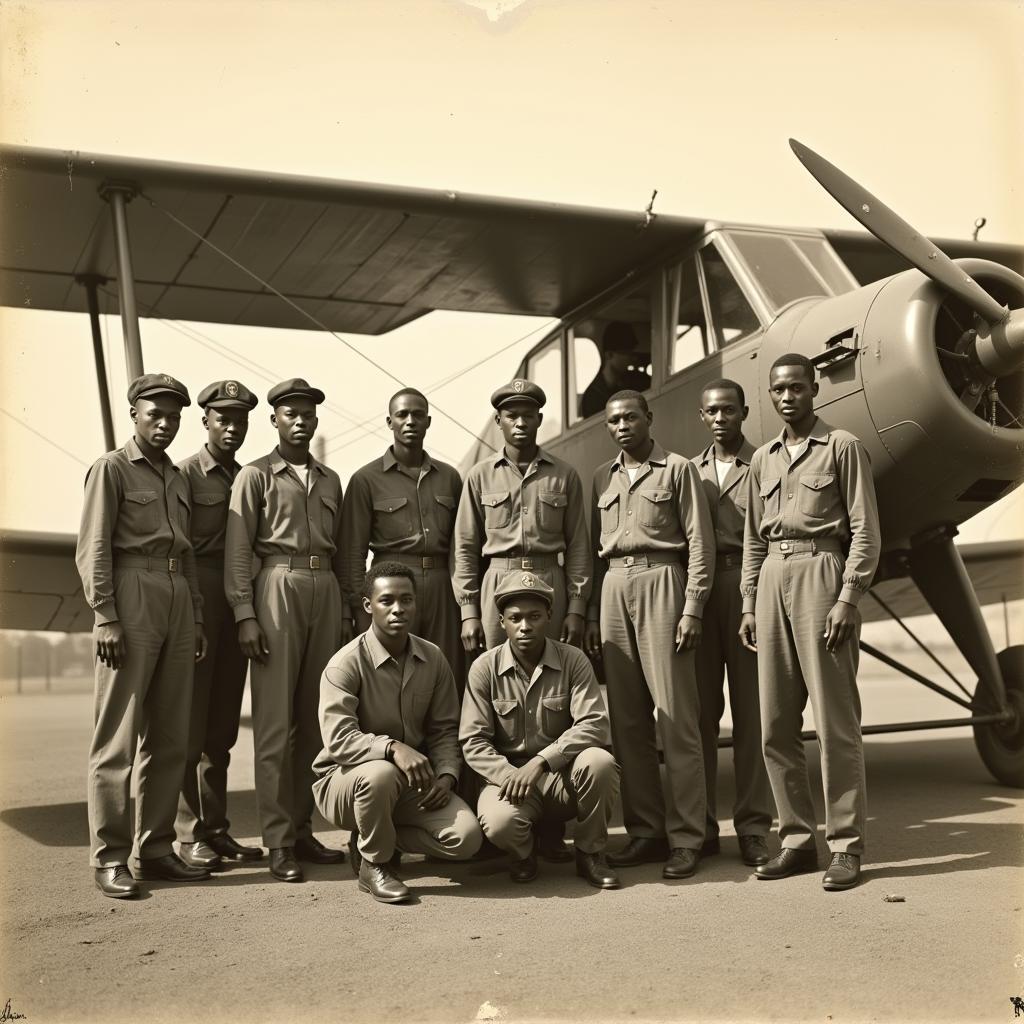 Early African American Aviators in Flight Training
Early African American Aviators in Flight Training
These individuals faced immense challenges, including segregation, limited resources, and widespread prejudice. Yet, they persevered, establishing flight schools, organizing air shows, and advocating for inclusion in the burgeoning aviation industry. Their efforts gradually chipped away at the barriers that stood in their path, creating opportunities for future generations of Black pilots. You can read more about the struggles and triumphs of African Americans during WW2 in this article: african americans during ww2.
The Tuskegee Airmen: A Legacy of Courage
The Tuskegee Airmen, a group of African American pilots who fought in World War II, became a symbol of hope and resilience. These brave men trained at Tuskegee Army Air Field in Alabama, overcoming segregation and discrimination to become one of the most highly decorated units in the war. Their bravery and skill in combat shattered stereotypes and helped pave the way for the desegregation of the U.S. military.
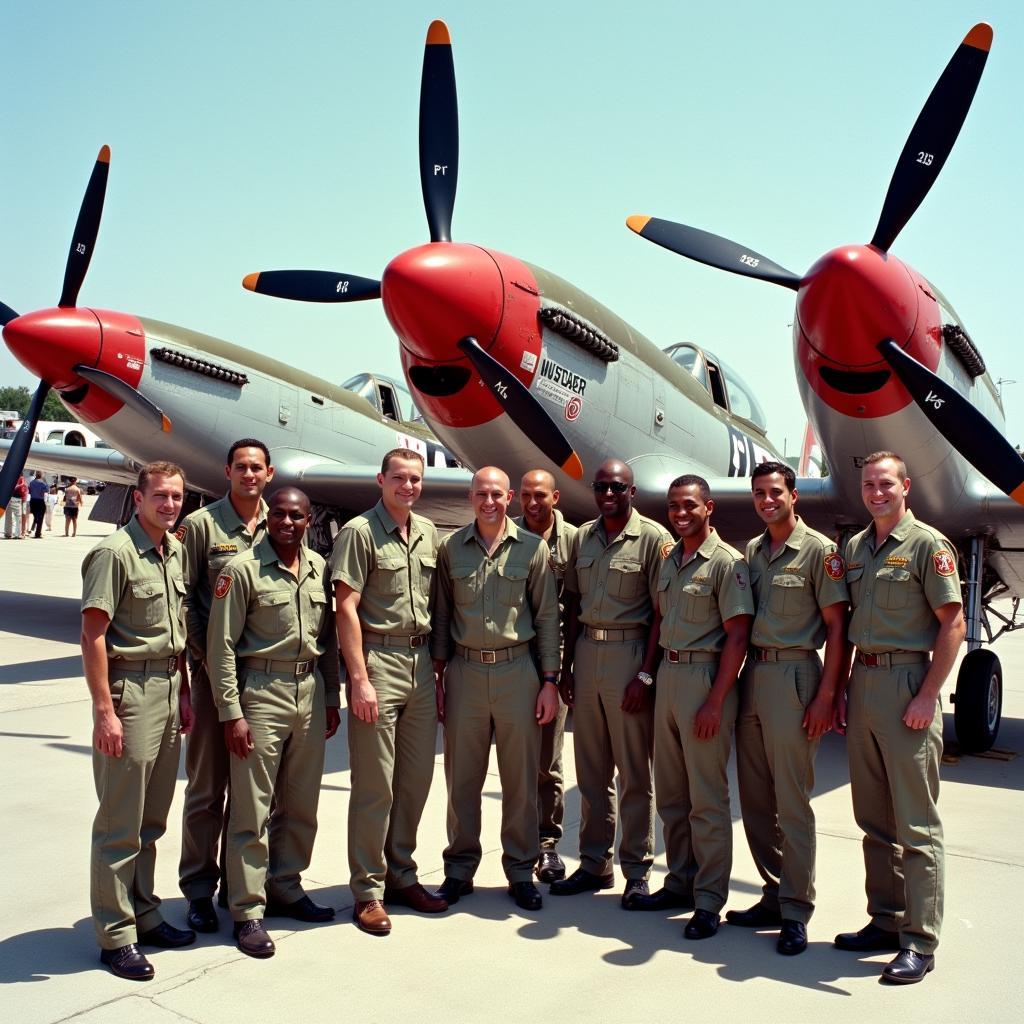 Tuskegee Airmen with their P-51 Mustang
Tuskegee Airmen with their P-51 Mustang
Their legacy extends far beyond their wartime contributions. The Tuskegee Airmen’s unwavering determination in the face of adversity inspired the Civil Rights Movement and continues to serve as a powerful reminder of the importance of equality and perseverance. For more details on this remarkable group of pilots, see african american tuskegee airmen.
Who were some famous African American pilots?
Some of the most famous African American pilots include Bessie Coleman, the first African American woman to earn a pilot’s license; the Tuskegee Airmen, a group of African American fighter pilots who served in World War II; and Mae Jemison, the first African American woman to travel to space. These individuals broke barriers and inspired generations to pursue their dreams, regardless of race or gender. Learn more about African American pilots in World War II by clicking african american pilots ww2.
What impact did African American aviators have on the Civil Rights Movement?
The achievements of African American aviators, especially the Tuskegee Airmen, significantly impacted the Civil Rights Movement. Their demonstrated excellence in a field previously closed to them challenged the prevailing racist narratives and provided a powerful symbol of Black capability and resilience. This helped fuel the fight for equality and desegregation. There are even movies depicting their heroism – you can learn more about african american pilots movie.
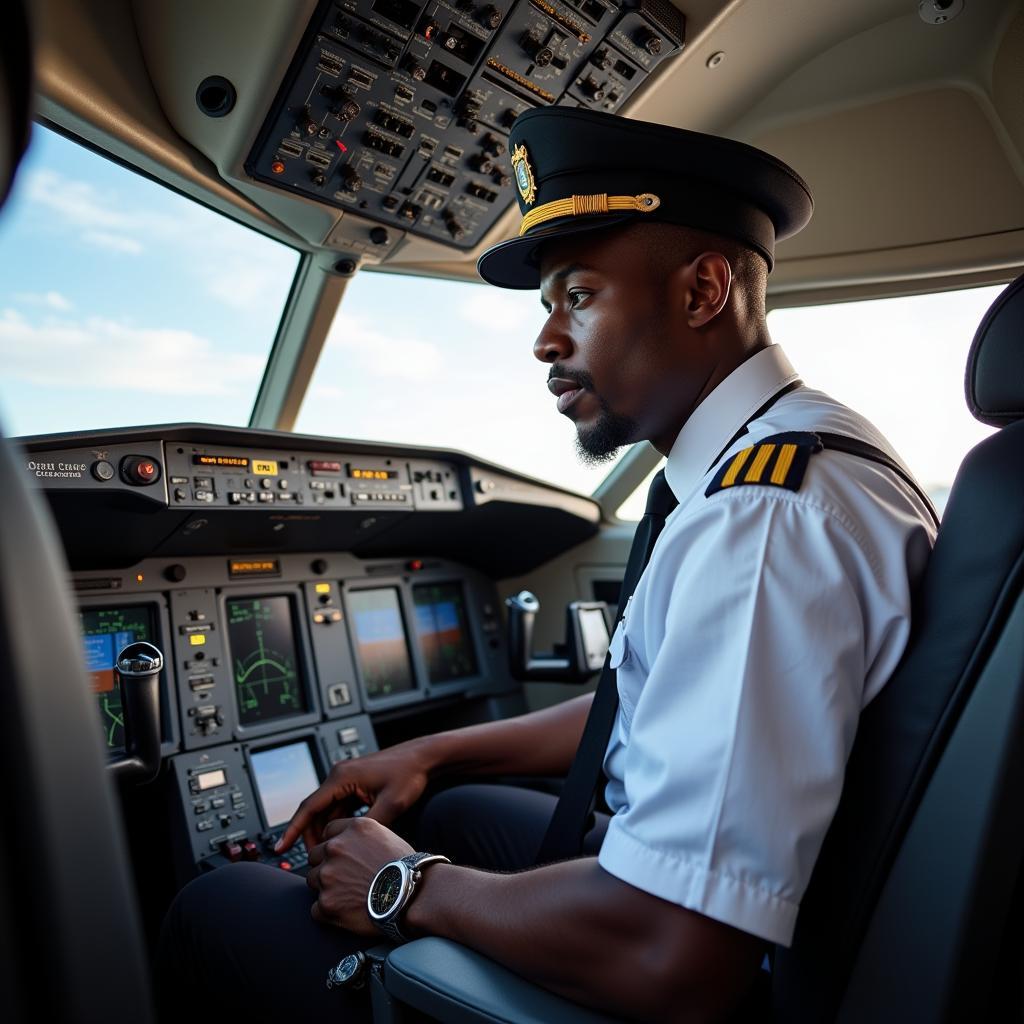 Modern African American Pilot in a Cockpit
Modern African American Pilot in a Cockpit
“The Tuskegee Airmen’s courage and determination served as a beacon of hope during a dark period in American history,” explains Dr. Amani Jackson, a historian specializing in African American studies. “Their accomplishments challenged the very foundations of segregation and inspired countless individuals to fight for equal rights.”
“Their legacy is not just about flying planes; it’s about breaking barriers and proving that anything is possible,” adds Captain David Mbowe, a retired commercial airline pilot.
Continuing the Legacy
The story of African American aviators is a continuing journey. Today, Black men and women continue to make significant contributions to the field of aviation, serving as pilots, engineers, and astronauts. Their achievements stand as a testament to the enduring legacy of those who came before them, paving the way for a more inclusive and diverse future in the skies. Find more information on the role of african american soldiers in ww2.
In conclusion, African American aviators have soared above prejudice and discrimination to leave an indelible mark on aviation history. From Bessie Coleman’s pioneering spirit to the heroism of the Tuskegee Airmen and beyond, their stories inspire us to reach for the skies and pursue our dreams, regardless of the obstacles we may face.
FAQ
- Who was the first African American woman to earn a pilot’s license? (Bessie Coleman)
- What was the name of the group of African American pilots who fought in WWII? (Tuskegee Airmen)
- Where were the Tuskegee Airmen trained? (Tuskegee Army Air Field, Alabama)
- How did African American aviators impact the Civil Rights Movement? (Their achievements challenged racist stereotypes and inspired the fight for equality.)
- What is the legacy of African American aviators? (A legacy of perseverance, courage, and breaking barriers in aviation and beyond.)
- What were some of the challenges faced by early African American aviators? (Segregation, limited resources, and prejudice.)
- How are African Americans contributing to aviation today? (As pilots, engineers, astronauts, and in other roles.)
Need more support? Contact us 24/7: Phone: +255768904061, Email: [email protected], or visit us at Mbarali DC Mawindi, Kangaga, Tanzania.

